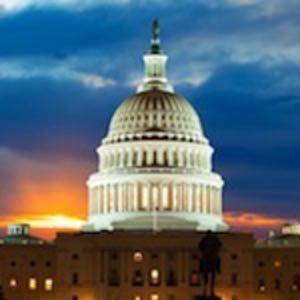A new bill is about to be officially introduced to the U.S. House of Representatives that would resurrect some unsavory aspects of the controversial Stop Online Piracy Act (SOPA) that sparked widespread protests last winter.

The bill, which the House Judiciary Committee is scheduled to mark up as soon as today, is titled the Intellectual Property Attaché Act (IPAA) and is primarily designed to expand the powers of so-called IP attachés within a new agency inside the Department of Commerce, even to the point of establishing a new Assistant Secretary of Commerce for Intellectual Property.
This is a very deliberate shift within the bureaucracy that’s designed to expand the powers of the intellectual property enforcement agents who work within the U.S. Patent and Trademark Office (USPTO). The primary mission of these new IP attachés would be, according to the bill, “to achieve potential benefit by reducing intellectual property infringement in the United States market and globally.”
One way to interpret this mission? Giving members of the diplomatic corps more powers to enforce intellectual property violations around the world.
What’s the Problem This Time?
Given that IP violations are against the law, where’s the problem? Opponents of the SOPA and PIPA bills from late 2011 and early 2012 will recognize this expansion of powers as part of the SOPA act, though at the time the provision got very little attention.
Those bills gave a number of new powers to copyright holders who found content on a website that they believed infringed on their copyright:
- They could ask any vendor providing revenue to that site to stop. For instance, the request could go to advertising or credit card providers for the allegedly infringing site, and they would have five days to cut their ties with the site.
- The bills would have enabled the U.S. Attorney General to send court orders to DNS server operators ordering them to stop resolving the domain names of allegedly infringing sites to their matching IP addresses – making it impossible for Web browsers to reach the sites by name.
- Search engines would also be required to remove or block links to these sites.
Protesters were incensed, particularly because all of these actions could have been set in motion by private corporations, with no requirements for legal proof.
A copyright holder need only accuse a website of infringement, and the search engine, advertisement and payment systems would be cut off in five days. DNS filtering would need the involvement of the Department of Justice to get a court order, but again, there would be no need to prove anything to obtain such an order from a judge.
Rushing to Judgment?
This time, though, the primary author of IPAA, Rep. Lamar Smith (R-TX) – the same Congressman who launched SOPA – has support even from those who opposed the original SOPA bill, including Rep. Darrell Issa (R-CA). Other co-sponsors include Reps. Howard Berman (D-CA), Howard Coble (R-NC), Steve Chabot (R-OH), Jason Chaffetz (R-UT), Bob Goodlatte (R-VA), Adam Schiff (D-CA), and Mel Watt (D-NC).
Clearly, Hollywood and other intellectual property holders would love to see IPAA passed: It actually expands on some aspects of SOPA/PIPA. And government agents with more power to enforce private intellectual property rights both domestically and globally is a taxpayer-funded dream for copyright holders.
The apparent rush to get IPAA in the pipeline could be intended to avoid the media scrutiny and protests that accompanied the attempts to pass SOPA and PIPA.
But that scrutiny is about to start. Opponents will soon be screaming that the new bill offers no exceptions or limitation on copyrights, and doesn’t even allow for other countries to deal with intellectual property issues in their own ways.
Hopefully, more public discussion will shed light on the true scope and powers of this bill.
Image courtesy of Shutterstock.

















